Are zero sugar energy drinks bad for you? Here’s what the science says
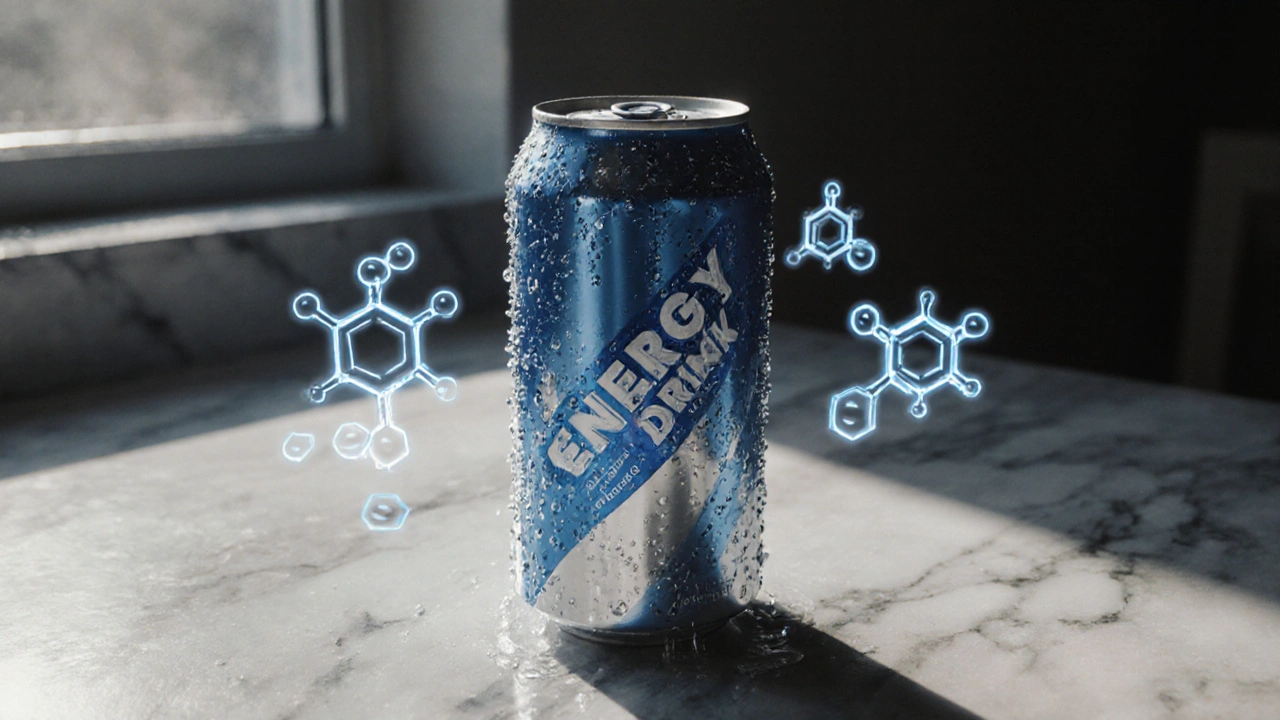
Zero sugar energy drinks promise the same punch as regular ones-without the sugar crash. But are they actually safer? Or are they just swapping one problem for another? If you’ve been sipping on these drinks thinking you’re making a healthier choice, you might want to pause and take a closer look.
What’s really in zero sugar energy drinks?
These drinks replace sugar with artificial sweeteners like aspartame, sucralose, acesulfame potassium, and stevia. They still pack the same dose of caffeine-often 80 to 160 mg per can. That’s about the same as a strong cup of coffee. Some also throw in B vitamins, taurine, guarana, and L-theanine. On paper, it looks clean. But what happens when your body digests these ingredients?
Take aspartame, for example. It’s been studied for over 40 years. The FDA and EFSA both say it’s safe at normal intake levels. But recent data from the World Health Organization in 2023 flagged it as a possible carcinogen-not because it’s proven to cause cancer, but because there’s enough uncertainty to warrant more research. That’s not a red flag. It’s a yellow one.
The sugar swap isn’t harmless
Switching from sugar to artificial sweeteners doesn’t automatically make you healthier. Studies show these sweeteners can still trigger cravings. Your brain expects sugar when it tastes something sweet. When it doesn’t get it, your body may respond by increasing appetite later in the day. A 2022 study in the Canadian Medical Association Journal found people who drank diet sodas daily were more likely to gain weight over time than those who drank water.
And it’s not just about weight. Artificial sweeteners can change your gut microbiome. Researchers at the Weizmann Institute in Israel found that mice fed sucralose developed glucose intolerance-meaning their bodies struggled to process sugar properly. Human trials showed similar patterns in some participants. That’s a problem if you’re already at risk for insulin resistance or type 2 diabetes.
Caffeine: the real powerhouse
Zero sugar energy drinks still deliver a serious caffeine hit. One can might have as much as 200 mg. That’s the upper limit recommended for a single dose by the European Food Safety Authority. For some people, that’s fine. For others, it’s a recipe for jitters, heart palpitations, or even anxiety.
Teens and young adults are especially vulnerable. A 2024 study from the University of Queensland tracked over 1,200 students aged 16-24. Those who consumed two or more sugar-free energy drinks per week were 3.5 times more likely to report sleep problems and 2.8 times more likely to experience panic attacks than those who avoided them. The caffeine isn’t the only culprit-it’s the combination with other stimulants like guarana and taurine that can overload your nervous system.
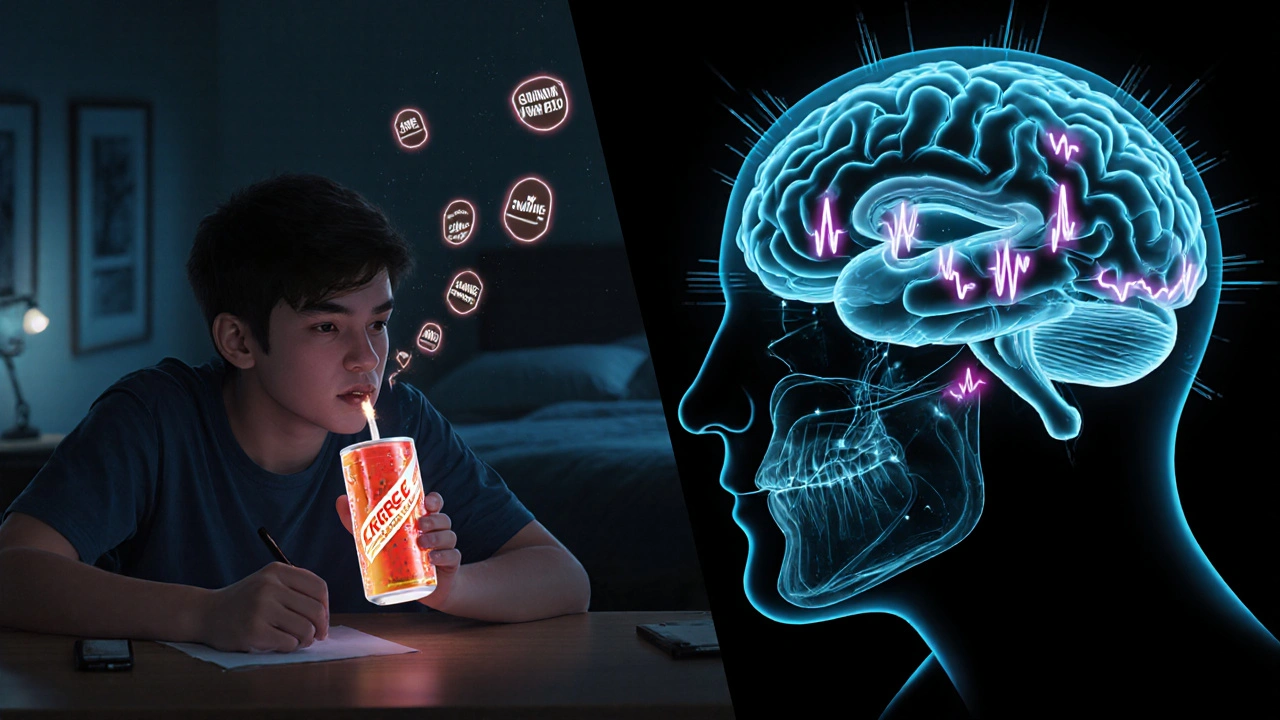
Acidity and dental damage
Even without sugar, these drinks are highly acidic. pH levels often sit between 2.5 and 3.5-close to vinegar. That’s enough to start dissolving tooth enamel after just a few sips. A 2023 Australian dental study found that regular consumers of sugar-free energy drinks had 30% more enamel erosion than those who drank plain water. And since these drinks are often sipped slowly over hours, your teeth are bathed in acid for longer.
It’s not just the sugar-free ones. Regular energy drinks are just as bad for teeth. But here’s the catch: people think sugar-free means safe, so they drink more of them. That’s the real danger.
Who should avoid them completely?
Not everyone reacts the same. If you’re pregnant, have heart disease, high blood pressure, anxiety disorders, or sleep issues, these drinks are a bad idea. The American Heart Association advises against energy drinks for anyone with cardiovascular conditions. Even healthy people can develop rhythm problems after heavy use.
Teens under 18 should avoid them entirely. The American Academy of Pediatrics says energy drinks have no place in a child’s diet. Their bodies are still developing, and their brains are more sensitive to stimulants. A single can can disrupt sleep patterns for days.
And if you’re mixing them with alcohol? That’s a dangerous combo. The caffeine masks how drunk you feel, leading people to drink more alcohol than they otherwise would. Emergency rooms in Brisbane and Sydney see a spike in cases every weekend during summer because of this mix.
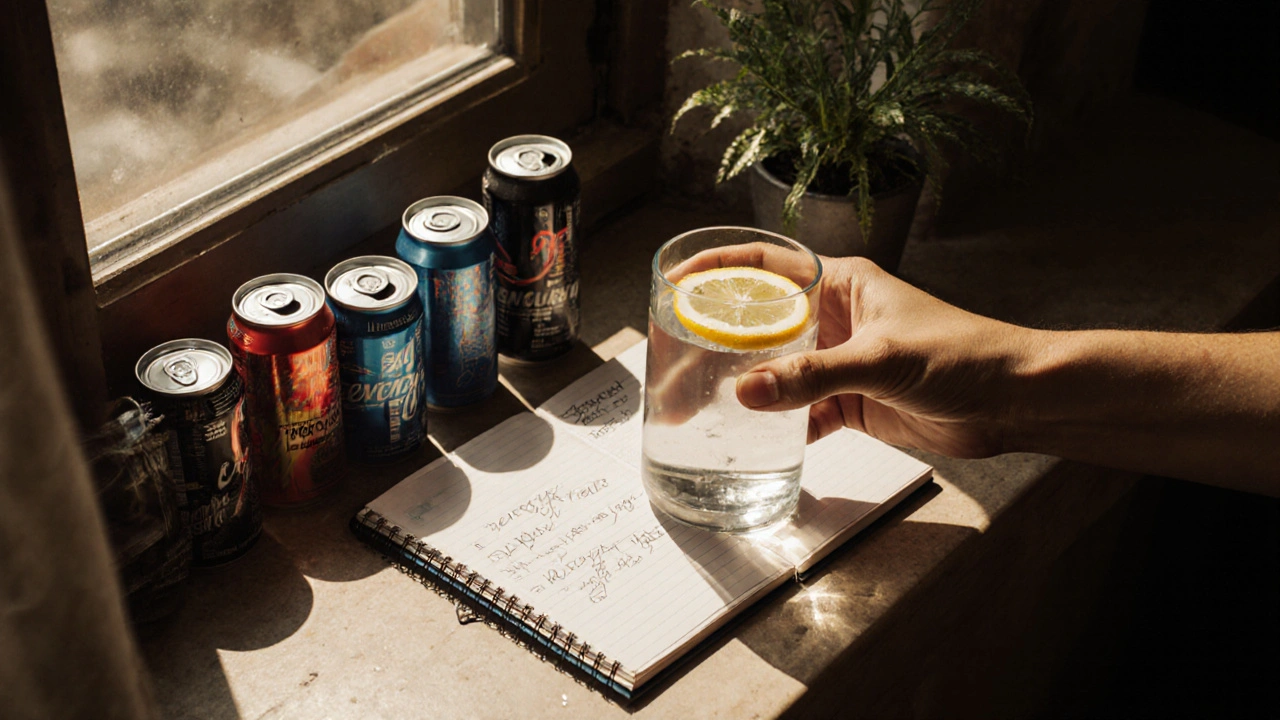
What are the alternatives?
You don’t need a can of chemical-laced liquid to get through the afternoon. Here’s what works better:
- Black coffee or green tea-natural caffeine with antioxidants
- Water with a pinch of sea salt and lemon-replenishes electrolytes without additives
- Matcha powder in water-smooth energy without the crash
- A 10-minute walk outside-boosts alertness naturally
- Getting 7-8 hours of sleep-yes, it’s still the best energy drink
Some brands now offer sugar-free energy drinks made with natural caffeine from green coffee beans and sweetened with monk fruit. These are better options-but still not magic. Check the label. If it has more than five ingredients you can’t pronounce, it’s probably not worth it.
How to cut back if you’re hooked
If you’re drinking one or more of these daily, quitting cold turkey can lead to headaches, fatigue, and irritability. That’s caffeine withdrawal. Instead, try this:
- Reduce by half a can every 3-4 days
- Swap one drink per day for green tea or sparkling water with lime
- Track your energy levels for a week without them-most people notice better sleep and steadier focus
- Don’t drink them after 2 p.m. to protect your sleep
- Drink a glass of water before reaching for one-often, thirst feels like fatigue
It takes about 7-10 days for your body to reset its caffeine sensitivity. After that, you’ll find you don’t need the jolt to stay awake. You’ll just feel more naturally alert.
The bottom line
Zero sugar energy drinks aren’t a health food. They’re a stimulant delivery system with hidden downsides. They might save you calories, but they can mess with your sleep, your gut, your teeth, and your nervous system. For most people, occasional use is low risk. Daily use? That’s where problems start.
If you’re drinking them to get through the day, the real fix isn’t a new drink. It’s better sleep, regular movement, and eating real food. No can of liquid will replace that.
Are zero sugar energy drinks worse than regular ones?
They’re not necessarily worse, but they’re not better either. Regular energy drinks load you with sugar, which causes blood sugar spikes and crashes. Zero sugar versions swap sugar for artificial sweeteners, which can disrupt your gut bacteria and increase cravings. Both types contain high caffeine and acid, which harm teeth and stress your nervous system. Neither is a healthy daily habit.
Can zero sugar energy drinks cause weight gain?
Yes, indirectly. Artificial sweeteners can trick your brain into expecting sugar, leading to increased hunger and cravings later. Studies show people who drink diet sodas daily are more likely to gain weight over time than those who drink water. The body doesn’t know the difference between real sugar and fake sweetness-it just responds to the signal. That’s why swapping sugar for sweeteners doesn’t always lead to weight loss.
Is aspartame in energy drinks dangerous?
For most people, aspartame is safe in normal amounts. The acceptable daily intake is 40 mg per kg of body weight-that’s about 12 cans of diet soda for a 70 kg adult. But the WHO classified it as a possible carcinogen in 2023 based on limited evidence. It doesn’t mean it causes cancer, but it means we need more long-term studies. If you’re concerned, choose drinks sweetened with stevia or monk fruit instead.
Do zero sugar energy drinks affect sleep?
Absolutely. Even if you drink one in the afternoon, the caffeine can stay in your system for 6-8 hours. Many people don’t realize they’re having trouble sleeping because of energy drinks. A 2024 study found that students who drank sugar-free energy drinks twice a week were nearly three times more likely to report poor sleep quality. The stimulants also reduce deep sleep, which is essential for recovery.
Are there any safe zero sugar energy drinks?
Some are safer than others. Look for drinks with natural caffeine (like green tea extract), no artificial sweeteners (use stevia or monk fruit), and fewer than five ingredients. Avoid those with taurine, guarana, or added B vitamins in mega-doses. Brands like Kill Cliff, Celsius (original version), and Hint Energy are better options-but still not daily necessities. Water, tea, and sleep are still the best energy sources.
Can kids drink zero sugar energy drinks?
No. Children and teens should avoid all energy drinks, sugar-free or not. Their developing brains and hearts are more sensitive to caffeine and stimulants. Even small amounts can cause anxiety, heart rhythm problems, and sleep disruption. The American Academy of Pediatrics strongly advises against energy drinks for anyone under 18. There’s no nutritional benefit that justifies the risk.

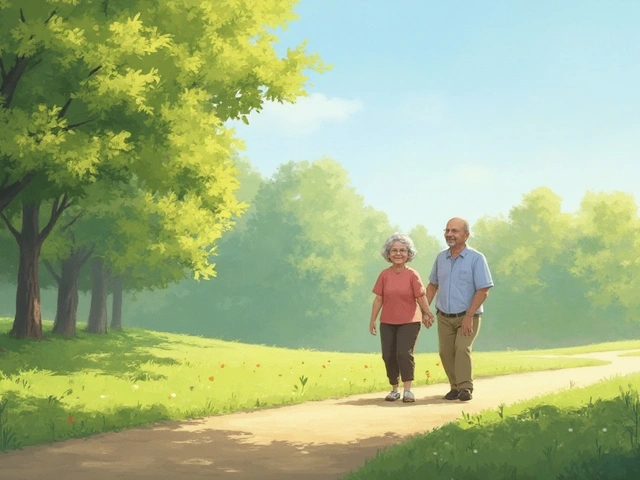

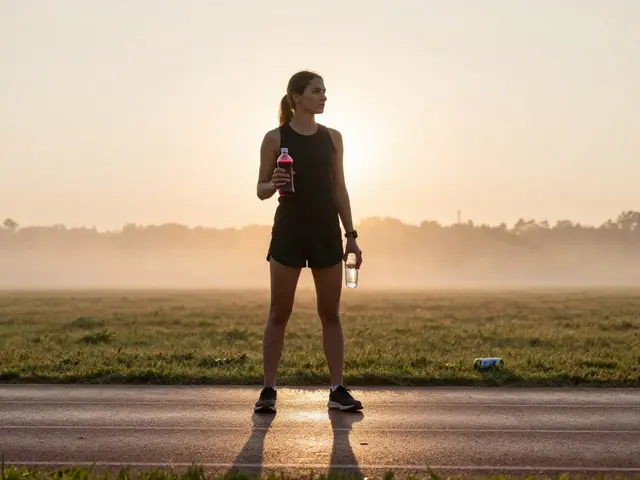
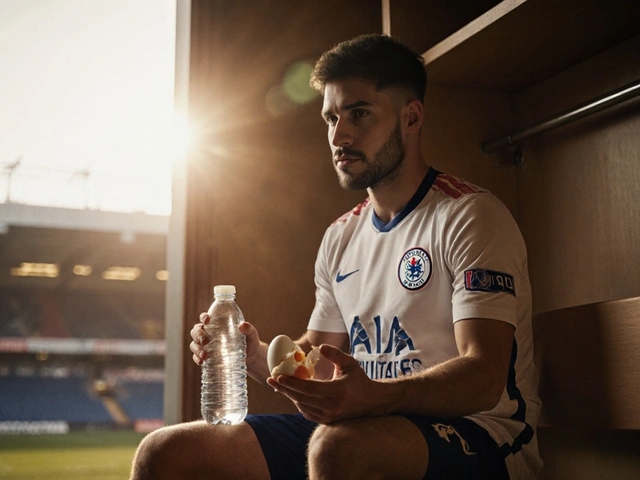
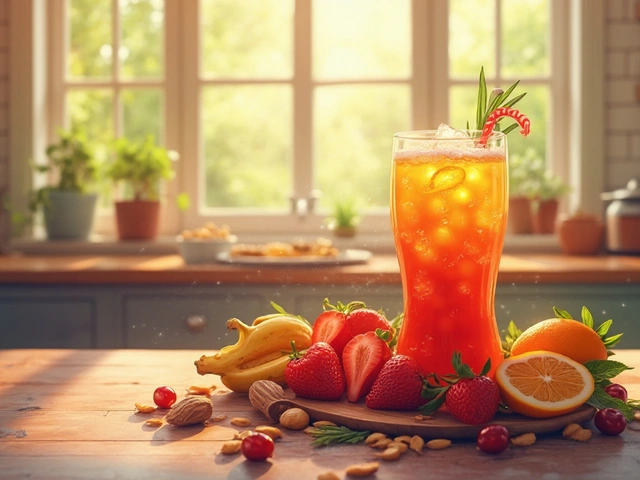
Comments (11)
Rajashree Iyer
6 Nov 2025
These drinks are just modern-day snake oil wrapped in neon labels and marketed as 'clean energy.' We’ve traded one addiction for another-sugar for sweeteners-but the soul-crushing dependency? Still there. Our bodies weren’t built to process lab-made chemicals as if they’re food. We’re not machines. We’re biological miracles that evolved over millions of years, and now we’re gulping down pH 2.5 acid cocktails like they’re tea. What are we even becoming?
Parth Haz
7 Nov 2025
While the concerns raised are valid, it's important to recognize that moderation and individual physiology play critical roles. For many, these beverages serve as a functional tool during demanding work hours or study sessions. The key lies in mindful consumption-not demonization. Replacing them with healthier alternatives is wise, but blanket condemnation overlooks the nuanced reality of modern life.
Vishal Bharadwaj
8 Nov 2025
lol so aspartame is a carcinogen now? next they’ll say water causes cancer because people drown in it. the who is just trying to sell more organic kale. also taurine is naturally in meat, you’re literally scared of amino acids now? and who cares if your teeth erode, go get veneers. also why is everyone acting like 80mg caffeine is a lot? my grandpa drank 5 espressos before breakfast and lived to 98.
anoushka singh
8 Nov 2025
Wait so you’re saying I can’t have my 3pm ‘I’m about to cry from exhaustion’ drink anymore? 😭 I literally just bought a six-pack. What am I supposed to do, sip chamomile tea and meditate? I have a 3am deadline and a toddler who thinks 5am is nap time. Give me a break.
Jitendra Singh
9 Nov 2025
I used to drink these daily. Then I switched to green tea and started walking after lunch. My focus improved, my anxiety dropped, and I actually slept through the night. It wasn’t magic-it was just removing something that was quietly draining me. Not saying everyone needs to quit cold turkey, but maybe try a week without and see how you feel.
Madhuri Pujari
10 Nov 2025
Ohhhhh so now it’s ‘possible carcinogen’? That’s the same logic that labeled pickles as ‘possibly carcinogenic’ because someone once ate one and got cancer 12 years later. The FDA says it’s fine, the EFSA says it’s fine-why are we listening to WHO’s vague, fear-mongering ‘possible’? Also, you say ‘dental erosion’-but you didn’t mention that drinking soda through a straw reduces it by 70%. You’re not giving solutions-you’re just scaring people with half-truths.
Sandeepan Gupta
11 Nov 2025
Great breakdown. One thing to add: the B vitamins in these drinks are mostly excreted unused-your body can’t store them, so you’re just paying for expensive urine. Also, L-theanine is actually a good addition if paired with caffeine-it smooths the edge. But when it’s buried in a cocktail with guarana and taurine? It’s like throwing a single rose into a dumpster fire. Stick to simple: caffeine + theanine + water. That’s all you need.
Tarun nahata
11 Nov 2025
These drinks are like emotional crutches for people who’ve forgotten how to rest. You’re not tired because you lack stimulants-you’re tired because you’ve been running on fumes for years. The real energy isn’t in a can. It’s in the quiet morning. The deep breath. The walk without headphones. The nap you didn’t feel guilty about taking. Stop chasing buzzes. Start rebuilding your soul.
Aryan Jain
11 Nov 2025
They’re lying. All of them. The FDA, WHO, big pharma-they all work for the same shadow corporations. These drinks are designed to mess with your brainwaves and make you dependent. The acid? It’s to kill your gut bacteria so you need more pills. The sweeteners? They’re nanotech that tracks your mood. You think this is about health? Nah. It’s about control. Wake up. The system wants you weak. Drink water. Or don’t drink anything. Just don’t trust the labels.
Nalini Venugopal
11 Nov 2025
Small correction: it’s ‘sucralose,’ not ‘sucralose.’ And ‘taurine’ is pronounced ‘taw-reen,’ not ‘tore-reen.’ Just saying-because if you’re going to write about science, at least get the words right. Also, your paragraph on dental erosion? Spot on. I’m a hygienist. I see this daily. People think ‘sugar-free’ means ‘safe for teeth.’ Nope. Acid doesn’t care if it’s from sugar or chemicals. It just eats.
Pramod Usdadiya
12 Nov 2025
In India, we’ve always had natural energy: masala chai, nimbu pani, and rest. These Western drinks feel alien. My uncle, 78, still wakes at 4am, walks 5km, and drinks warm water with lemon. No caffeine. No sweeteners. Just rhythm. Maybe we don’t need to copy the ‘fast energy’ culture. Maybe we just need to remember how to slow down.